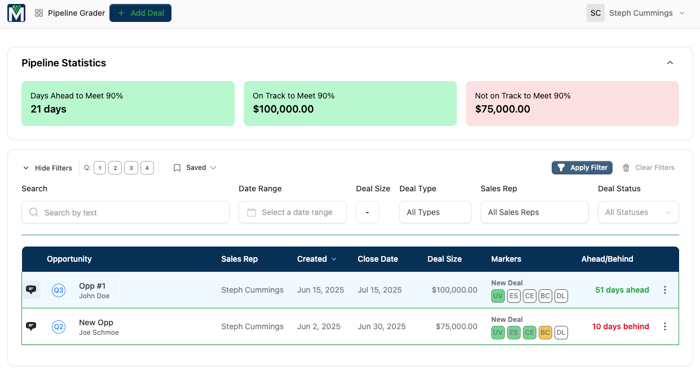Org Charts Show Hierarchy—But Not Influence.
“Life is Politics” and “Politics is Life” is an old adage because it’s true. Let’s face it: every organization (large and small) has a political structure (not Democrat or Republican, but informal relationships) and as salespeople, we need to understand it, mitigate it and, ultimately, make that political environment work for us.
Please note that the organizational structure is hierarchical and easy to understand, but may or may not accurately reflect the political structure. For example, in every organization there are influential non-authorities that impact decisions in often unpredictable ways.
So how do we identify all the people in the political power base? Beyond the obvious org chart, there are internal relationships that need to be identified and understood. For example, who are the people that the CFO seems to trust that do not report to him/her? Is there someone in IT that executed a successful project recently? Or maybe there are people with whom the decision maker worked at a prior company and in whom he/she has confidence.
Needless to say, the possibilities are limitless, so we need to keep our eyes open to notice nuances in meetings and who is copied on emails that seem out of the ordinary.
Once identified, how do we convert these influencers into supporters? What if they harbor biases against us? Since we likely don’t have pre-existing relationships with these influencers, we should assume they are not biased in our favor. So what do we do?
Once we identify these critical influencers, we need to understand their biases and work to (at a minimum) mitigate those biases by educating them on the value of our solution to both the organization as a whole, as well as to them directly. For example, if a key influencer is likely going to be the project manager, he/she needs to understand how a successful project with us will yield recognition or even a promotion for him/her. Often, project managers of enterprise projects are able to leverage project success into personal success, such as a promotion.
Since there could be multiple potential influencers, we need to be alert for possible “double agents” and "saboteurs." Don’t forget … the best product does not always win. Instead, the product with the best political support usually wins (of course, sometimes they are one and the same).
Salespeople who assume that their product is inherently superior often overlook the subtleties of the political climate within an organization and lose, as a consequence of that arrogance. The moral of the story is that it’s great to have a dominant product, but failure to recognize and adjust to individual corporate political nuances could cost you a deal.
Compass by MOIC helps your salespeople avoid political traps and work through even the most complex organizations through its AI engine and its incorporation of your company’s tribal knowledge. Whether you're evaluating deal risk, mapping influencers, or spotting internal champions, MOIC's Pipeline Grader provides data-driven visibility that helps you turn organizational politics into an advantage instead of an obstacle.

Please note that the organizational structure is hierarchical and easy to understand, but may or may not accurately reflect the political structure. For example, in every organization there are influential non-authorities that impact decisions in often unpredictable ways.
So how do we identify all the people in the political power base? Beyond the obvious org chart, there are internal relationships that need to be identified and understood. For example, who are the people that the CFO seems to trust that do not report to him/her? Is there someone in IT that executed a successful project recently? Or maybe there are people with whom the decision maker worked at a prior company and in whom he/she has confidence.
Needless to say, the possibilities are limitless, so we need to keep our eyes open to notice nuances in meetings and who is copied on emails that seem out of the ordinary.
Once identified, how do we convert these influencers into supporters? What if they harbor biases against us? Since we likely don’t have pre-existing relationships with these influencers, we should assume they are not biased in our favor. So what do we do?
Once we identify these critical influencers, we need to understand their biases and work to (at a minimum) mitigate those biases by educating them on the value of our solution to both the organization as a whole, as well as to them directly. For example, if a key influencer is likely going to be the project manager, he/she needs to understand how a successful project with us will yield recognition or even a promotion for him/her. Often, project managers of enterprise projects are able to leverage project success into personal success, such as a promotion.
Since there could be multiple potential influencers, we need to be alert for possible “double agents” and "saboteurs." Don’t forget … the best product does not always win. Instead, the product with the best political support usually wins (of course, sometimes they are one and the same).
Salespeople who assume that their product is inherently superior often overlook the subtleties of the political climate within an organization and lose, as a consequence of that arrogance. The moral of the story is that it’s great to have a dominant product, but failure to recognize and adjust to individual corporate political nuances could cost you a deal.
Compass by MOIC helps your salespeople avoid political traps and work through even the most complex organizations through its AI engine and its incorporation of your company’s tribal knowledge. Whether you're evaluating deal risk, mapping influencers, or spotting internal champions, MOIC's Pipeline Grader provides data-driven visibility that helps you turn organizational politics into an advantage instead of an obstacle.

If your enterprise SaaS sales team needs help working through corporate political morasses, please visit our website for guidance.



